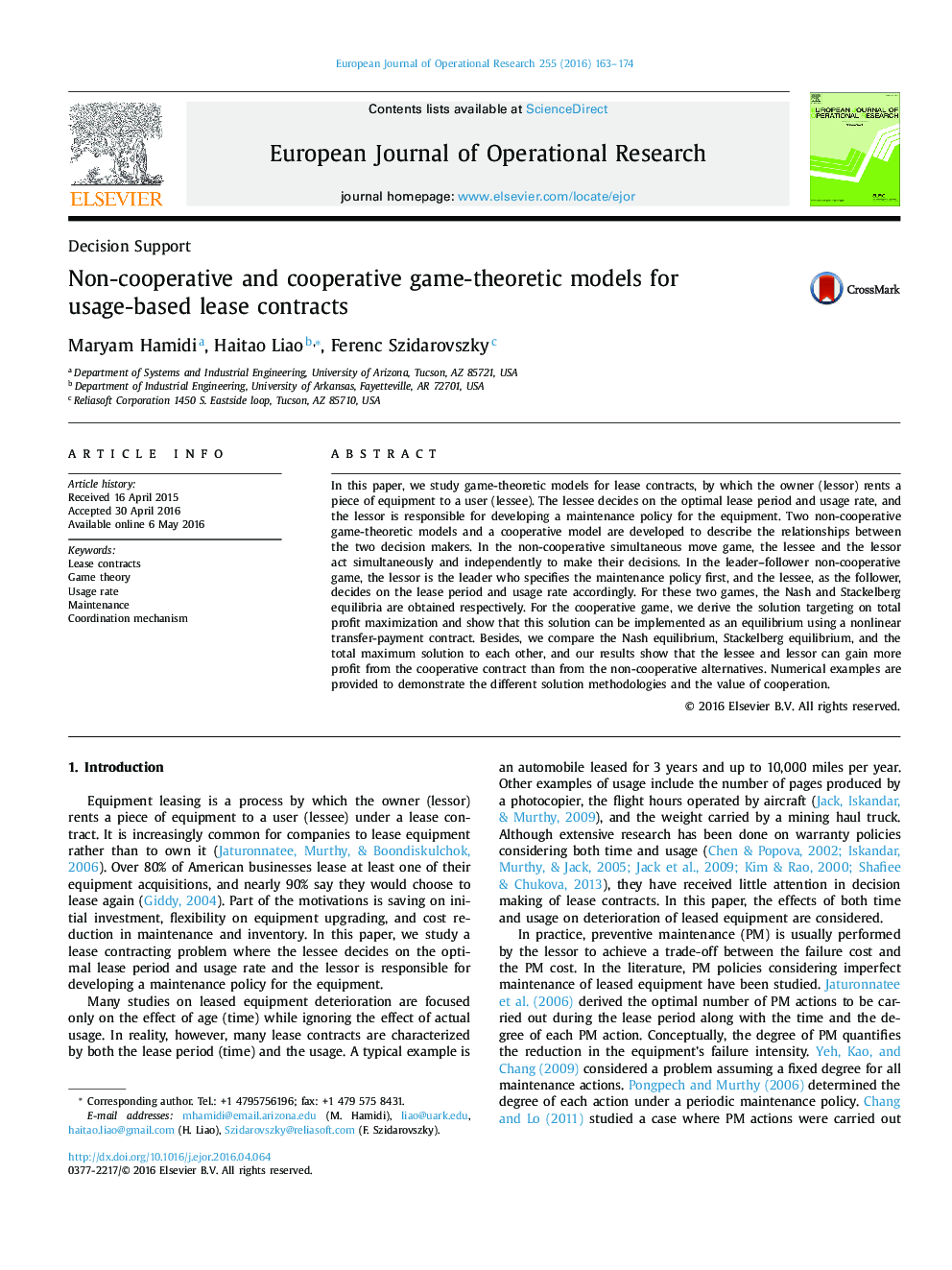| Article ID | Journal | Published Year | Pages | File Type |
|---|---|---|---|---|
| 480428 | European Journal of Operational Research | 2016 | 12 Pages |
•Lease contracts considering effects of both time and usage on deterioration of leased equipment are studied.•The profits of three different lease contract models based on two noncooperative games and one cooperative game are compared.•For the cooperative case, a mutually satisfactory negotiated price is determined to allocate the total profit.•It is seen that cooperation increases the total profit significantly if the lease price is high or the generated revenue is low.
In this paper, we study game-theoretic models for lease contracts, by which the owner (lessor) rents a piece of equipment to a user (lessee). The lessee decides on the optimal lease period and usage rate, and the lessor is responsible for developing a maintenance policy for the equipment. Two non-cooperative game-theoretic models and a cooperative model are developed to describe the relationships between the two decision makers. In the non-cooperative simultaneous move game, the lessee and the lessor act simultaneously and independently to make their decisions. In the leader–follower non-cooperative game, the lessor is the leader who specifies the maintenance policy first, and the lessee, as the follower, decides on the lease period and usage rate accordingly. For these two games, the Nash and Stackelberg equilibria are obtained respectively. For the cooperative game, we derive the solution targeting on total profit maximization and show that this solution can be implemented as an equilibrium using a nonlinear transfer-payment contract. Besides, we compare the Nash equilibrium, Stackelberg equilibrium, and the total maximum solution to each other, and our results show that the lessee and lessor can gain more profit from the cooperative contract than from the non-cooperative alternatives. Numerical examples are provided to demonstrate the different solution methodologies and the value of cooperation.
